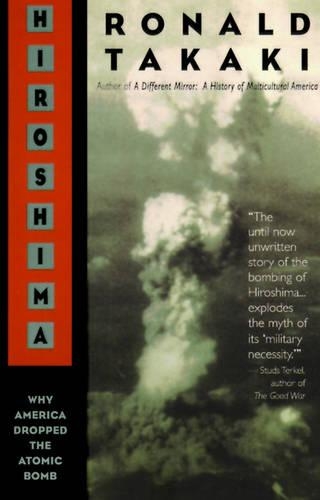
Hiroshima: Why America Dropped the Atomic Bomb
(Paperback)
Publishing Details
Hiroshima: Why America Dropped the Atomic Bomb
By (Author) Ronald Takaki
Little, Brown & Company
Back Bay Books
1st September 1996
United States
Classifications
General
Non Fiction
Second World War
Modern warfare
940.5425
Physical Properties
Paperback
208
Width 140mm, Height 210mm
Description
The bombing of Hiroshima was one of the pivotal events of the twentieth century, yet this controversial question remains unresolved. At the time, General Dwight Eisenhower, General Douglas MacArthur, and chief of staff Admiral William Leahy all agreed that an atomic attack on Japanese cities was unnecessary. All of them believed that Japan had already been beaten and that the war would soon end. Was the bomb dropped to end the war more quickly Or did it herald the start of the Cold War In his probing new study, prizewinning historian Ronald Takaki explores these factors and more. He considers the cultural context of race - the ways in which stereotypes of the Japanese influenced public opinion and policymakers - and also probes the human dimension. Relying on top secret military reports, diaries, and personal letters, Takaki relates international policies to the individuals involved: Los Alamos director J. Robert Oppenheimer, Secretary of State James Byrnes, Secretary of War Henry L. Stimson, and others... but above all, Harry Truman.
